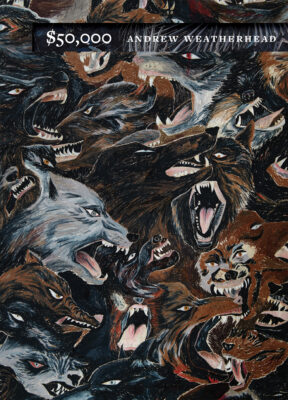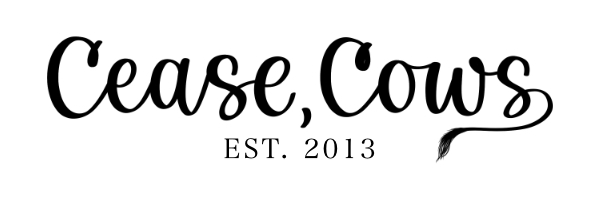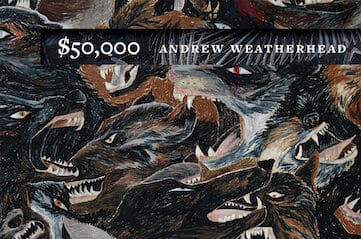In advance of April and National Poetry Month, we spent some time with the new book by poet Andrew Weatherhead. $50,000 (Publishing Genius Press) is a unique book worth reading for its playful juxtapositions and attention to the unexpected insight that can exist within a single line.
Purchase your copy here.

Weatherhead recently shared his thoughts with Cease, Cows.
Chuck Augello: How would you describe $50,000 to a potential reader?
Andrew Weatherhead: It’s a long poem of standalone lines that are triple-spaced. You can read it in an hour or two.
CA: $50,000 is a unique, ambitious project. Tell us how you came to write it.
AW: I’ve wanted to write a long poem of standalone lines that included a lot of white space since about 2013 or 2014. My last book, Todd, has a long poem called “1,000 Words” that was my first attempt at this project, but it features line breaks and irregular spacing across the page. For this book ($50,000), I knew I wanted a plainer, less artistic formatting to emphasize the repetition of the lines and subject matter. “1,000 Words” is a bit more ethereal and abstract.
CA: One of the more intriguing lines is “The world appears when you least expect it.” What does that mean to you?
AW: Don’t give up.
CA: There are a number of quotes from people like George Foreman and Rodney Dangerfield. I wasn’t sure if they were real quotes. How do these quotes contribute to the poem as a whole?
AW: They’re real quotes as far as I’m aware, but some of them came secondhand so I can’t be 100% sure of their accuracy. I just wanted the poem to be open to different voices. There was no overarching theory or ideology. If a quote worked, I used it. Sometimes they are saying something I wish I had thought of, and sometimes they are interesting snippets of language from unique sources.
CA: Among the many lines in the book, is there one that you feel captures $50,000 at its best?
AW: Yes. “Writing poetry is easy” is the best line in the book, in my opinion. I probably think about the line “The fractal nature of wealth” the most, though. I’m also constantly thinking about the goofy names that appear in the book, which I found on www.nameoftheyear.com. They’re like little mantras that get suck in my head as I go about my day: Bufus Dewberry… Lolita Respectnothing… Gates Peed… Ham Biggar…
CA: $50,000 ends with what appears to be a meaningless social media exchange. Why did you choose this as the ending?
AW: It’s a meme I found on the internet years ago and it cracks me up. I think it’s incredibly profound. (Here’s what I wrote to my publisher to advocate for its inclusion: I think it’s just the most perfect and hilarious encapsulation of the book’s treatment of language and human connection.)
That’s funny that you saw it as the end of the book. To me, the end of the book is the last printed line (“I wish I had something to say”) and the meme is more like a postscript or afterward to the poem. Semantics… I had originally thought the meme would be on the back cover, but then Robyn O’Neil generously let us use her artwork and it’s way better.
Should we reproduce the meme here so people can see what we’re talking about?
CA: Finally, there’s no shortage of ways to spend one’s time. Why do you choose to write poetry?
AW: It’s fun and fulfilling.
–
Chuck Augello (Contributing Editor) lives in New Jersey with his wife, dog, two cats, and several cows that refuse to cease. His work has appeared in One Story, Juked, Hobart, SmokeLong Quarterly, and other fine places. He publishes The Daily Vonnegut and contributes interviews to The Review Review. He’s currently at work on a novel.

